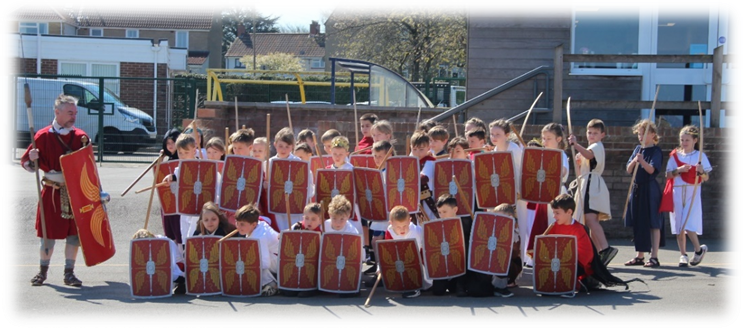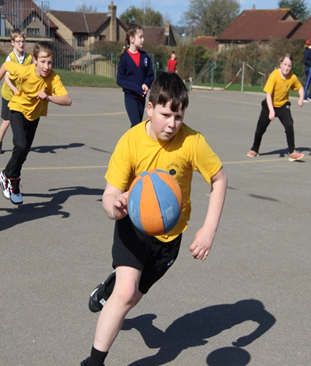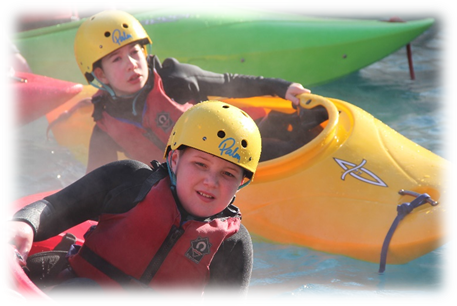Curriculum
📚 Welcome to Our Junior School Curriculum Page! 🌟
At Paulton Junior School we are committed to providing a happy, safe and stimulating environment in which children can enjoy their learning. We strive to make learning fun and provide an education that develops the whole child academically, socially, physically and emotionally.

|
Our curriculum intends to:
- Provide a broad and balanced education for all pupils that’s coherently planned and sequenced towards progression and sufficient knowledge for skills and future learning and employment.
- Enable pupils to develop knowledge, understand concepts and acquire skills, and be able to choose and apply these in relevant situations
- To set challenging expectations of educational standards and achievement which enable pupils to reach high standards of attainment
- To value individuals and provide opportunities that are equal for everyone, regardless of race, gender or intellect
- Ensure equal access to learning for all pupils, with high expectations for every pupil and appropriate levels of challenge and support
- Promote a positive attitude towards learning
- To equip pupils with the knowledge and cultural capital they need to succeed in life and enable children to receive an education that will serve them beyond their primary school experience, by developing the whole child as an individual, encouraging confidence, high self-esteem and independence
- To ensure that the ethos of the school provides a valuable learning experience, where mutual respect and co-operation fosters positive attitudes to work and relationships
- To establish a climate in which children, teachers, parents and governors work together to achieve the best possible education for each and every child.
- To provide 32.5 hours in school per week from September 2023. (8:30am-3:00pm)
At the end of the Key Stage in Year 6, children are formally assessed (SATs) in English and Maths and a measure of attainment is provided for each child. However, throughout their education at Paulton Junior School all children are assessed formally and informally. This enables the teacher to plan work accordingly, to ensure children are working to their ability.
If you would like to find out more about our curriculum, please contact the school office or click below for a brief overview of each subject:
ENGLISH
At Paulton Junior School we believe that a quality English curriculum should develop children’s love of reading, writing, spelling and discussion. Producing learners who are curious to learn, want to discover more, have a thirst for learning and are life-long learners. We have a rigorous and well organised English curriculum that provides many purposeful opportunities for reading, writing, spelling and discussion. Our overarching aims, which can be located on our website are embedded across our English lessons and the wider curriculum. We will provide the means for children to develop a secure knowledge-base in English, which follows a clear pathway of progression as they advance through the primary curriculum. Rigorous assessment and review will ensure that we are able to provide targeted support so that all children experience success in English; we believe that a secure basis in literacy skills is crucial to a high-quality education and will give our children the tools they need to participate fully as a member of society.
MATHS
Mathematics is an essential tool for everyday life. It is a whole network of concepts and relationships which provide a way of viewing and making links and sense of the world. It is used to analyse and communicate information and ideas and to tackle a range of practical tasks and real-life problems. Please see our website for how our curriculum develops pupils as mathematicians.
SCIENCE
It is our intention at Paulton Junior School to develop in all young people a lifelong curiosity and interest in the sciences. Our Science curriculum aims to give all children a strong understanding of the world around them whilst acquiring specific skills and knowledge to help them to think scientifically, to gain an understanding of scientific processes and also an understanding of the uses and implications of Science, through history, today and for the future. When planning for the science curriculum, we intend for children to have the opportunity, wherever possible, to learn through varied systematic investigations, leading to them being equipped for life to ask and answer scientific questions about the world they live in. As children progress through the year groups, they build on their skills in working scientifically, as well as on their scientific knowledge, as they develop greater independence in planning and carrying out fair and comparative tests to answer a range of scientific questions. At PJS we ensure that children have a varied, progressive and well-mapped-out science curriculum that provides the opportunity for progression across the full breadth of the science national curriculum for KS2.
COMPUTING
All pupils at Paulton Junior School Children will able to develop a wide range of fundamental skills, knowledge and understanding that will actually equip them for the rest of their life. This allows children to apply the fundamental principles and concepts of computer science. They develop analytical problem-solving skills and learn to evaluate and apply information technology. It also enables them to become responsible, competent, confident and creative users of information technology.
PSHE
Personal, Social and Health Education and Citizenship, (PSHE and C), is designed to help give pupils the knowledge, skills and attributes they need to keep themselves healthy and safe, and prepare for life and work in modern Britain. (PSHE Association 2017) At Paulton Junior School this means that all our pupils are encouraged to take part in a wide range of activities and experiences across the curriculum as well as being encouraged to participate in extra-curricular activities. Developing skills such as resilience, self-esteem, risk management, teamwork and critical thinking in the context of learning grouped into three key themes. As a result, they are contributing fully to the life of our school and local communities. By the age of 11 pupils will have learned about healthy and unhealthy relationships, health and well-being both mental and physical health, living in the wider world, underpinned by British values of democracy, individual liberty, rule of law, respect and tolerance as well as where to seek help and advice. Please see our website on how we aim to equip our children with the skills to be well-rounded individuals as we strive to prepare our children for secondary school and beyond.
RE
At Paulton Junior School, we believe that it is important for all our pupils to learn from and about religion, so that they can understand the world around them. The aim of Religious Education in our school is to help children to acquire and develop knowledge and understanding of Christianity and the other principal religions represented in Great Britain. Our aims are for children to appreciate the way that religious beliefs shape life and human behaviours; to explore their own philosophies and beliefs; to develop the ability to justify and give reasons for their thoughts and enhance their spiritual, moral, cultural, emotional, social and physical development. Religious Education is taught throughout the school in such a way as to reflect the overall aims, values, and philosophy of the school, whilst promoting British values, ensuring that children are aware of their rights and responsibilities as UK citizens. It plays an important role, along with all other curriculum areas, particularly PSHE, in promoting social awareness and understanding in our children. We encourage our pupils to ask questions about the world and to reflect on their own beliefs, values and experiences. Our curriculum is designed to encourage creativity, imagination, enquiry, debate, discussion and independence.
PE
 PE is a vital part of school life and ultimately children’s future well-being. It is therefore our intent to provide an inclusive, broad and balanced PE curriculum that ensures ALL children will benefit, whether through enhancing existing skills, learning new skills or being introduced to new sports, clubs, teams and organisations.
PE is a vital part of school life and ultimately children’s future well-being. It is therefore our intent to provide an inclusive, broad and balanced PE curriculum that ensures ALL children will benefit, whether through enhancing existing skills, learning new skills or being introduced to new sports, clubs, teams and organisations.
It is our intent to ensure children understand the importance of leading a healthy lifestyle and to equip them with the tools to do so through health and well-being education. Children must understand how to take care of themselves both physically and mentally, in order to be successful as adults.
Beyond merely a subject, we believe that participation in sporting activity is a key element of developing a school in which pupils are proud of the community in which they belong. Therefore, great emphasis is placed upon additional sporting opportunities beyond the lesson within after-school clubs, inter-house and inter-school competition and festivals, as well as directly trying to support the local clubs within the Midsomer Norton area. We believe this links directly with our school’s values of Learning together, learning for life and is another way in which we can positively engage with our local community and be active citizens within it.
MUSIC
At Paulton Junior School all our students deserve a broad and ambitious music curriculum, rich in skills and knowledge, which ignites curiosity and prepares them well for future learning and moreover engenders a lifelong love of music. Music teaching involves a constant revisiting of skills and knowledge. As such, our progression document sets out how these skills are added to and embellished over the 4 years of KS2. To aid teacher assessment and support learning, each term will have a different focus area enabling the teacher to target a specific area of learning which, in turn, gives each child access to a musical education that is both broad and balanced.
ART
https://southbristolarts.co.uk/workshops-performances/
Paulton Junior School aims to provide all children with a coherent, well-structured and enjoyable education in the Arts, which inspires awe and wonder, a sense of achievement and fosters a curiosity and a voice to comment on their experiences of the world around them. The potential for self-expression and sense of personal achievement in the Arts should be open and obtainable to all children.
DT
“Design is not just what it looks like and feels like. Design is how it works.” Steve Jobs
Design and Technology is an inspiring, rigorous and practical subject. Using creativity and imagination, pupils design and make products that solve real and relevant problems within a variety of contexts, considering their own and others’ needs, wants and values. The children are also given opportunities to reflect upon and evaluate past and present design technology, its uses and its effectiveness and are encouraged to become innovators and risk-takers.
High-quality design and technology education make an essential contribution to the creativity, culture, wealth and well-being of the nation. At Paulton Junior School, we want to allow children to be exposed to a variety of Design & Technology opportunities to aspire to creating opportunities for them in the wider world. Through the DT curriculum, children should be inspired by engineers, designers, chefs and architects to enable them to create a range of structures, mechanisms, textiles, electrical systems and food products with a real-life purpose. Through the evaluation of past and present design and technology, they develop a critical understanding of its impact on daily life and the wider world.
It is the intent of Paulton Junior School for Design Technology to be taught in all year groups through at least one topic per full term, which includes one topic relating to food every year.
FRENCH
‘A high-quality languages education should foster pupils’ curiosity and deepen their understanding of the world. The teaching should enable pupils to express their ideas and thoughts in another language and to understand and respond to its speakers, both in speech and in writing.’ (National Curriculum 2014 – Appendix A)
It is our intent at Paulton Junior School to provide all of our children with a high-quality education in Modern Foreign Languages (MFL), which develops their love of learning languages and other cultures. We currently teach French, however, we strive to provide children with opportunities to experience a range of other languages as well. The teaching is committed to providing opportunities for the children to communicate for practical purposes; spontaneously and creatively and relevant to their current interests. It is our intention to ensure that by the end of our children’s primary education, they have acquired an understanding of all four skill areas of French, confidence to speak in French with others, feel prepared to transfer successfully to the KS3 Language curriculum as well as have an appreciation of the importance of cultural diversity and traditions.
GEOGRAPHY
All pupils at Paulton Junior School will be offered a structure and sequence of lessons from teachers to ensure they have covered the skills required to meet the aims of the national curriculum through Rising Star Geography. The content allows for a broader, deeper understanding of the four areas of geography identified in the curriculum. It will develop contextual knowledge of the location of globally significant places and understanding of the processes that give rise to key physical and human geographical features of the world, along with how they bring about variation and change over time. We intend to develop children’s curiosity and a fascination of the world and its people that will remain with them for the rest of their lives. The units offer a range of opportunities for investigating places around the world as well as physical and human processes. The lessons are intended to improve children’s geographical vocabulary, map skills and geographical facts and provide opportunities for consolidation, challenge and variety to ensure interest and progress in the subject.
HISTORY
Rising Stars History provides a history curriculum that is ambitious and designed for all pupils. It is coherently planned and sequenced towards cumulatively providing the necessary knowledge and skills for the pupils’ future to empower them to take their role as informed and active citizens in the 21st century. Its emphasis is not just on historical knowledge but also skills and concepts. It has the same challenging academic ambitions for all pupils. They all work from a shared starting point to answer the same key questions.
The content provides pupils with a clear understanding of how people lived in the past and what they believed to be important. Within the units there are recurring themes such as settlement, migration and religion which builds a stronger web of knowledge to ensure it sticks. Engaging with challenging themes will enable pupils to connect with what is happening in the world around them. It will enable them to engage in debate about what is happening today and use the past to inform those opinions. Over the course of the scheme, pupils will develop an understanding of how we know about the past through a range of sources of evidence and with increasing confidence will consider their utility and reliability. Following the scheme will ensure pupils benefit from a curriculum that enriches their lives and broadens their cultural experiences. This will lead to a better understanding of culture and heritage and a desire to engage further with these areas.
SWIMMING
Children in all year groups at Paulton Junior School have the opportunity to take part in swimming lessons. With a pool adjacent to the school it is an opportunity not to be missed. The cost of this is currently met by the school.
HOMEWORK
Homework is given regularly to all children. Year 3, 4, 5 and 6 are given spelling activities related to written work, some number work and reading. It is also requested that on occasion work is finished or research completed in preparation for class-based activities. A book is provided for the children to complete their work and a home school reading record is provided. Homework in English, Maths or a Foundation subject is given weekly, on Monday for return on Friday. In addition to this, all classes will be given 'Open Homework Projects' throughout the year. Homework is also displayed on the Year Group page of the website.
EXTRA-CURRICULAR ACTIVITIES
For Junior children there are clubs after school and during the lunchtime break. These clubs reflect the commitment and expertise of the teaching staff and all children are encouraged to take part in these activities. All clubs are free of charge, except where professional coaching is brought into school. Your child will be given the opportunity to sign up to a club in Terms 1 & 2, 3 & 4 and 5 & 6.
SCHOOL TRIPS AND RESIDENTIALS

Each year group will have the opportunity to go on trips and visits to enrich their experiences. Year 6 will be given the opportunity to go on a Residential camp.
THE SCHOOL COUNCIL
The school has an elected council made up of two children from each class. These children form a council who meet with staff representatives to look at ways of developing the school. Children can make comments and suggestions to their council representatives via class-based suggestions boxes. The school council organises its own fundraising events, involves itself in community projects and debates topical issues; all aspects of the school’s citizenship programme.

